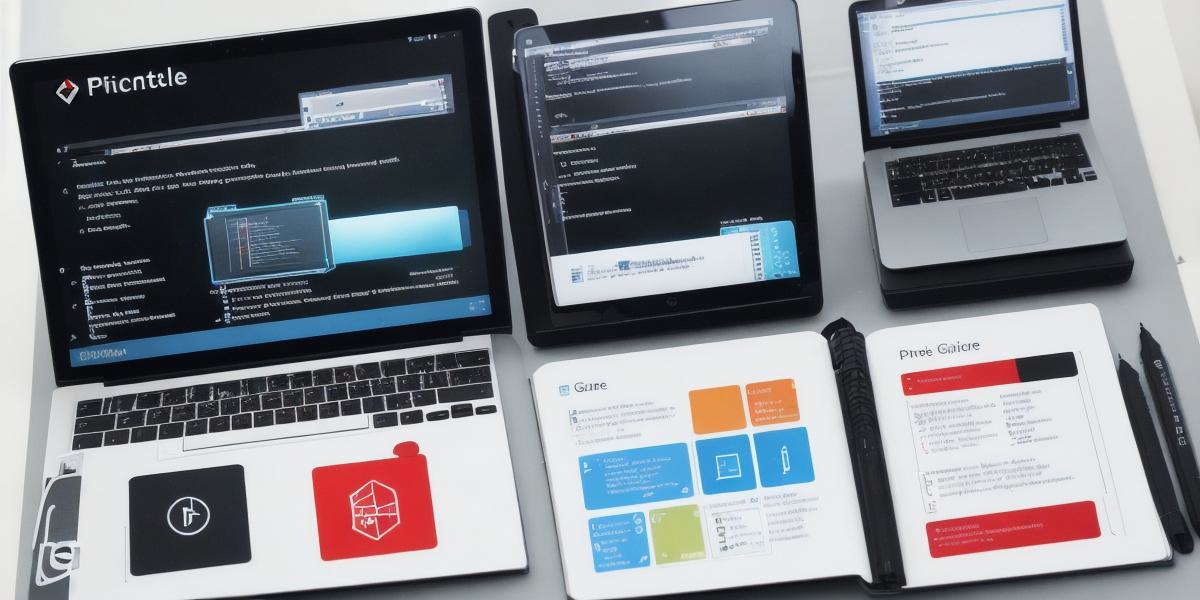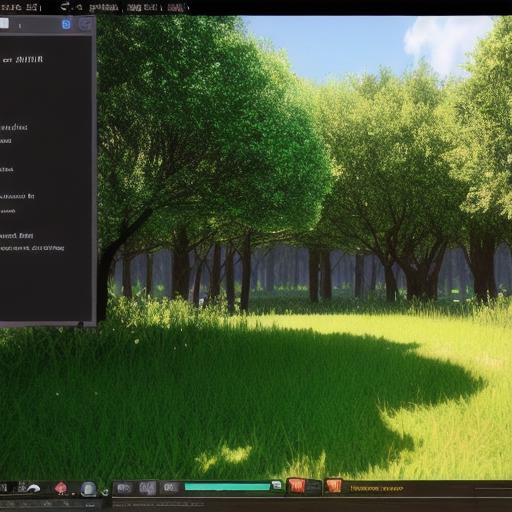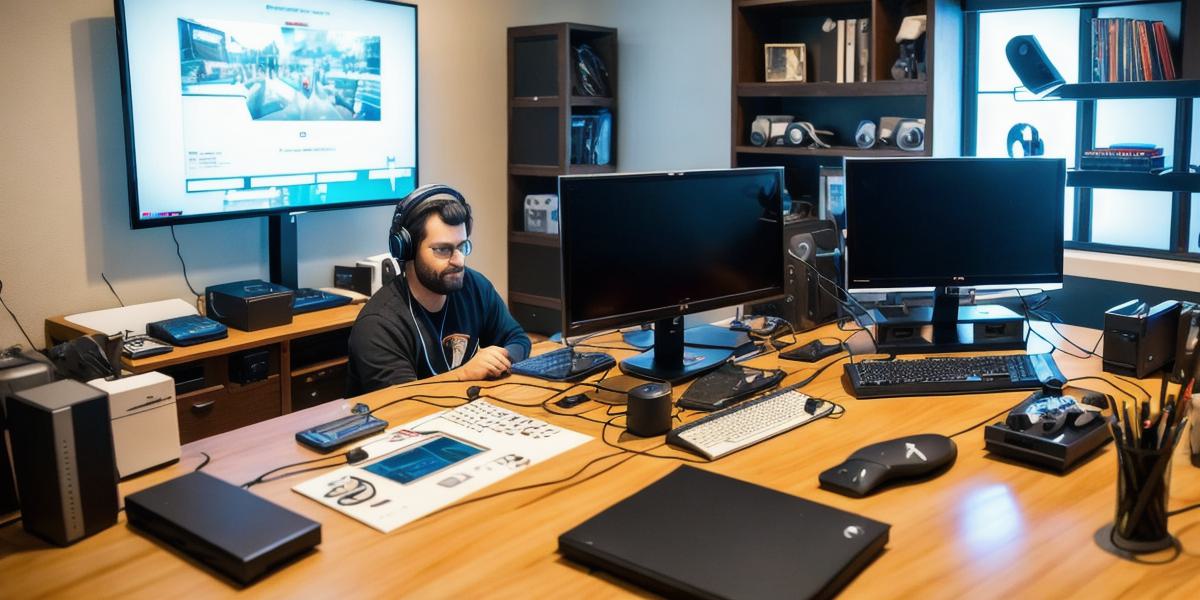If you’re interested in creating games, you may have heard about game development tools that can help you create your dream project. These tools are essential for game development, as they allow you to design, develop, and test your game ideas. In this comprehensive guide, we’ll explore the key features and functions of game development tools, including their benefits and limitations.
What are Game Development Tools?
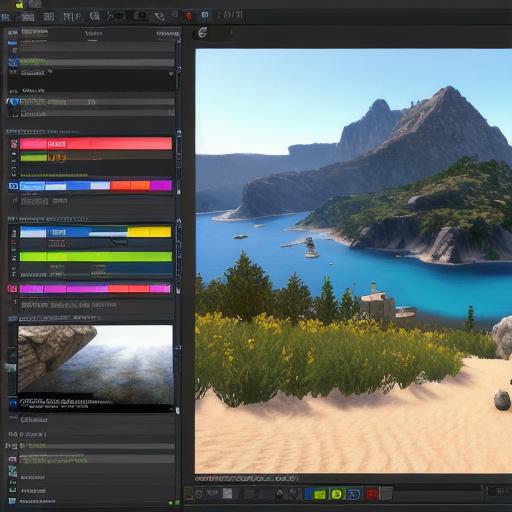
Game development tools are software programs used by game developers to create games. These tools include everything from 2D and 3D graphics editors to scripting languages and debugging tools. They can be used for various stages of game development, such as prototyping, design, programming, and testing.
Some examples of game development tools include Unity, Unreal Engine, CryEngine, Godot, and Construct 2. These tools are widely used in the gaming industry, and each has its unique features and functions. In this article, we’ll focus on some of the most popular game development tools.
Key Features and Functions of Game Development Tools
- Unity
Unity is one of the most popular game development tools in use today. It is a cross-platform game engine that supports both 2D and 3D graphics, and it can be used to create games for various platforms such as Windows, Mac, iOS, Android, and consoles. Some of the key features and functions of Unity include:
- Scripting languages: Unity supports various scripting languages like C, JavaScript, and Boo. You can use these languages to write code for your game.
- Assets library: Unity has a vast assets library that contains pre-built objects, materials, and effects that you can use in your game.
- User interface: Unity has an intuitive user interface that makes it easy to create games, even if you have no coding experience.
-
Collaboration tools: Unity has collaboration tools that allow multiple developers to work on the same project simultaneously.
- Unreal Engine
Unreal Engine is another popular game development tool used in the gaming industry. It is a real-time 3D engine that supports various platforms like Windows, Mac, iOS, Android, and consoles. Some of the key features and functions of Unreal Engine include:
- Physics simulation: Unreal Engine has a powerful physics engine that allows you to simulate realistic physics in your game.
- Graphical user interface (GUI): Unreal Engine has an easy-to-use GUI that makes it easy to create games, even if you have no coding experience.
- Animation tools: Unreal Engine has animation tools that allow you to create complex animations for your game characters and objects.
-
Collaboration tools: Unreal Engine has collaboration tools that allow multiple developers to work on the same project simultaneously.
- CryEngine
CryEngine is a real-time 3D game engine used by game developers to create stunning graphics and realistic physics in their games. It supports various platforms like Windows, Mac, iOS, Android, and consoles. Some of the key features and functions of CryEngine include:
- Physics simulation: CryEngine has a powerful physics engine that allows you to simulate realistic physics in your game.
- Graphical user interface (GUI): CryEngine has an easy-to-use GUI that makes it easy to create games, even if you have no coding experience.
- Animation tools: CryEngine has animation tools that allow you to create complex animations for your game characters and objects.
-
Collaboration tools: CryEngine has collaboration tools that allow multiple developers to work on the same project simultaneously.
- Godot
Godot is an open-source game development tool used by indie game developers to create games for various platforms like Windows, Mac, iOS, Android, and consoles. Some of the key features and functions of Godot include:
- Scripting languages: Godot supports various scripting languages like C++, Python, and GDScript. You can use these languages to write code for your game.
- Assets library: Godot has an assets library that contains pre-built objects, materials, and effects that you can use in your game.
- User interface: Godot has an intuitive user interface that makes it easy to create games, even if you have no coding experience.
-
Collaboration tools: Godot has collaboration tools that allow multiple developers to work on the same project simultaneously.
- Construct 2
Construct 2 is a game development tool used by beginners to create games for various platforms like Windows, Mac, iOS, Android, and consoles. It uses drag-and-drop programming, which means you don’t need to write any code to create your game. Some of the key features and functions of Construct 2 include:
- User interface: Construct 2 has an intuitive user interface that makes it easy to create games, even if you have no coding experience.
- Assets library: Construct 2 has an assets library that contains pre-built objects, materials, and effects that you can use in your game.
- Collaboration tools: Construct 2 has collaboration tools that allow multiple developers to work on the same project simultaneously.
Benefits of Game Development Tools
Game development tools have several benefits, including:
Time-saving
Game development tools can save you a lot of time by automating certain tasks and reducing the amount of code you need to write. For example, Unity’s animation tools can help you create complex animations quickly, while CryEngine’s physics engine can simulate realistic physics in your game.
Improved collaboration
Game development tools have collaboration tools that allow multiple developers to work on the same project simultaneously. This means you can work with other developers to create your game, even if you’re not in the same location.
Wide range of features and functions
Game development tools have a wide range of features and functions that can help you create games for various platforms and stages of game development. For example, Unreal Engine has animation tools, while Godot has a scripting language that supports multiple languages.
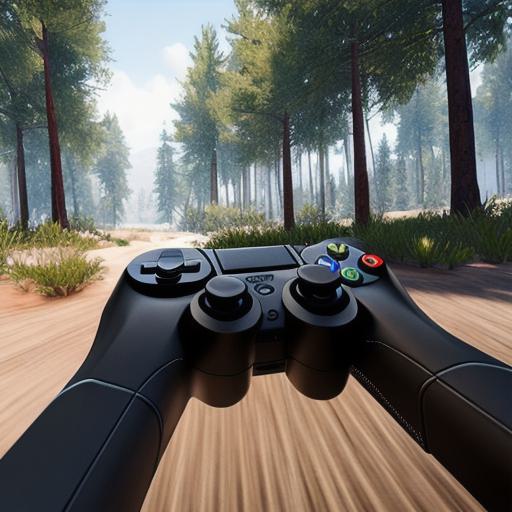
Reduced cost
Some game development tools are free or open-source, which means you don’t have to spend money on expensive software licenses. This can be particularly useful for indie game developers who have limited budgets.
Limitations of Game Development Tools
While game development tools are essential for game development, they also have some limitations, including:
Steep learning curve
Some game development tools can be complex and difficult to learn, especially if you have no coding experience. This can be a barrier to entry for beginners who want to create games.
Limited creativity
Game development tools can sometimes limit your creativity by imposing constraints on how you can design and develop your game. For example, if you’re using Construct 2, you may not have as much control over the look and feel of your game as you would with a more powerful engine like Unreal Engine.
Compatibility issues
Game development tools can sometimes be incompatible with certain platforms or hardware configurations, which means you may need to make changes to your game to ensure it works properly.
Case Studies and Personal Experiences
To help illustrate the key features and functions of game development tools, let’s look at some case studies and personal experiences from game developers.
Case Study: Unity 3D
Unity 3D is a popular game development tool used by indie game developers to create games for various platforms. Here’s an example of how it works:
Jane is an indie game developer who wants to create a puzzle game for mobile devices. She decides to use Unity 3D because it’s easy to learn and supports both 2D and 3D graphics. Jane creates the game’s levels using Unity’s built-in tools, including the animation tool, which helps her create complex animations quickly. She also uses Unity’s scripting language, which allows her to write custom code for her game’s logic.
After a few months of development, Jane releases her puzzle game on the App Store and Google Play. The game receives positive reviews from players, who appreciate its challenging levels and smooth animations.
Personal Experience: Construct 2
I once used Construct 2 to create a simple text-based adventure game for desktop computers. Here’s what my experience was like:
I chose Construct 2 because it didn’t require any coding, which meant I could focus on designing and developing the game’s story and mechanics. I created the game’s levels using Construct 2’s built-in tools, which included a drag-and-drop interface for creating scenes and adding objects.
One of the biggest challenges I faced was finding ways to create realistic interactions between the game’s characters and objects. Construct 2’s scripting language didn’t support as many features as other engines like Unity or CryEngine, which meant I had to get creative with my code to achieve the desired effects.
Despite these challenges, I was able to complete the game in a few weeks, thanks in part to Construct 2’s intuitive user interface and vast resources for learning and troubleshooting. I released the game on Desura, an indie game distribution platform, and it received positive reviews from players who appreciated its engaging storyline and challenging puzzles.
Summary
Game development tools are essential for creating games that look and feel great on various platforms. While they have some limitations, such as steep learning curves and limited creativity, they also offer many benefits, including time-saving, improved collaboration, a wide range of features and functions, and reduced cost. By understanding the key features and functions of game development tools like Unity 3D, CryEngine, Godot, Construct 2, and others, you can create games that are engaging, challenging, and visually stunning.
